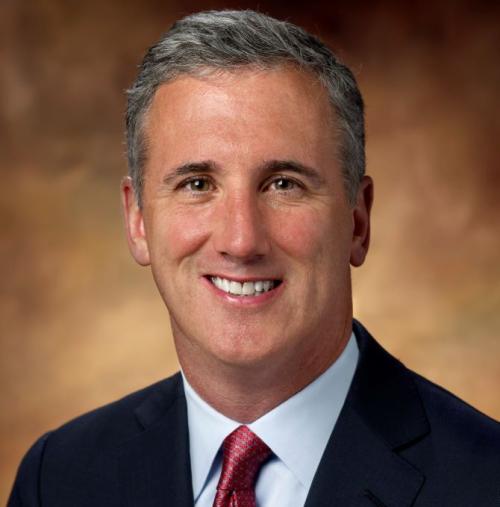Stephen Norman: 30 years of influence.
If there’s anyone who knows the inner workings of the corporate secretary’s office, it’s Stephen Norman, winner of the lifetime achievement accolade at Corporate Secretary’s Corporate Governance Awards 2011. Norman held the office of corporate secretary at American Express for 27 years, earning the title of chief governance officer in 2003 before retiring in 2009 to start his own company.
 Norman began his career in the 1970s, working closely with the corporate secretary at American Express as a staff attorney. He was essentially groomed for the position and appointed to the job in 1982 at age 39. He was drawn to the job early on, noting that it was a way to have a very significant impact on a company by gaining entry into the world of boardroom politics.
Norman began his career in the 1970s, working closely with the corporate secretary at American Express as a staff attorney. He was essentially groomed for the position and appointed to the job in 1982 at age 39. He was drawn to the job early on, noting that it was a way to have a very significant impact on a company by gaining entry into the world of boardroom politics.
‘The appealing part of the profession is the ability to participate in decision-making on all the most important issues facing the company,’ says Norman. ‘You don’t vote like a director, but you shape the resolutions, you shape the presentations – you tee up the life-or-death decisions for the board’s review and you get to see in action the debates that occur over these very major things.’
Norman says some of the boardroom giants he’s witnessed include Henry Kissinger, former president Gerald Ford, Vernon Jordan and ‘a bunch of strong-willed CEOs’.
‘To see them grappling with these issues using work you have done in preparation for their consideration is heady stuff,’ he states.
The power triangle
While some may not think of the corporate secretary’s office as a power position, Norman believes the post is extremely influential because it monitors the power flows between the three sides of what he calls ‘the power triangle’ – the board, the shareholders and management. ‘The corporate secretary is between those three, translating and communicating,’ he explains. Right now, he believes the shareholders are the strongest of the three.
Norman has shown tremendous flexibility in the job over the ears. As governance has become a greater focus for publicly traded companies over the last decade, he has been instrumental in crafting many of AmEx’s governance policies and has helped develop several industry governance best practices. He has also been a strong advocate for the financial services industry, speaking to state legislatures and Congress about credit card legislation and other financial industry reforms.
Having spent his entire career in the corporate secretary’s office, Norman has seen a host of changes in the job during the last 30 years. He says there are 10 major changes that have occurred during his time as a corporate secretary that have allowed companies to achieve greater efficiency, make better use of their staff and resources, and promote better governance.
They are:
Impact of the internet and technology.
Today about one third of proxy materials are delivered in paper format – it used to be 100 percent. The advent of electronic mail, teleconferencing and tablet technology has produced huge gains in speed, productivity and efficiency for corporations.
Shareholder activism and the growing power of institutional shareholders. In the past, proposals and stock option plans in management’s favor would pass routinely. ‘If a 10 percent negative vote came in in the early 1980s, that would be alarming,’ Norman says. Now, such issues are contested and corporate secretaries have to cope with a much more active institutional base.
Migration from registered ownership to street name ownership.About 70 percent of all shares were held in registered (certificate) form when Norman began as a corporate secretary in 1982; now the figure stands at less than 2 percent. The move to street name ownership has made settling trades faster and easier and has shifted a lot of costs from issuers to brokerage firms that handle client accounts.
Repeal of NYSE Rule 452 and loss of the broker vote on uninstructed shares. In the past, if clients didn’t vote their shares, the broker could vote them on their behalf, which was a boon to management. That is no longer the case, as the identity of who is voting shares must be accounted for.
Increased influence of proxy advisory firms ISS and Glass Lewis. Up until a few years ago, these firms didn’t exist – now, many institutions follow their recommendations. ‘They move about 20 percent of the shares just on what ISS and Glass Lewis recommend,’ Norman notes.
Advent of the 80-page proxy statement and increase in disclosure.The great expansion in disclosures has led to compensation sections that span 30 pages. That’s a huge difference for the practitioner.
Emergence of corporate governance as a separate profession.
Governance was always a notion, but now it’s a profession. The development of the chief governance officer position has produced a huge change.
Gender equality has transformed what used to be a nearly all-male profession. A calling that used to be dominated by men has now become a leader in gender mobility. Norman says the profession may be at least 50 percent women now, but that this ‘hasn’t diluted in any way the standards of the profession. It’s been a great demographic shift for the better, because we have twice as big of a talent pool.’
Far greater independence and accountability in the boardroom. Boards have changed so much that we now have lead directors, separate chairmen and outsiders on all key committees. Directors have the flexibility to participate remotely by phone or other technology, adding to the trend toward greater director independence.
Executive compensation has become the primary focus of shareholder activism.‘Once upon a time, it was issues like doing business in South Africa, signing the Valdez Principles, rotating the annual meeting or political contributions,’ says Norman. ‘Now it’s all comp.’
Overall, Norman believes these 10 changes have made the profession better, leading to more accountable governance. He also believes they have helped make the job of corporate secretary more influential than it has ever been.
‘I love the profession,’ he concludes. ‘I think it warrants greater attention and recognition.’








